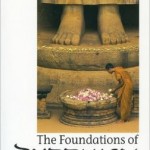I wrote a blog post for the Losing My Religion blog in June in which I talked about a specific experience that turned me away from Catholicism for good, but there were so many other experiences throughout my life that influenced my decision as well.
In general, religious activities confused me and caused me to ask questions that I never felt were adequately answered. Sunday school was a place I went, not to learn more about Jesus, but to sing songs, play games, and hear silly stories. It was not a place to ask questions, and when questions were asked, no one ever really seemed to have the answer. The hypocrisy of church was overwhelming to me. I saw people who genuinely believed that if they attended church regularly enough, they would be “saved”. They asked for forgiveness weekly, and continued to live their lives exactly the same way they did before. To me, it was akin to having a lover who cheated week after week, came and asked forgiveness and expected to receive it, and then went right back and continued the behavior without trying to improve, or stop the behavior entirely.
Not every person who attended church was like this, and I certainly don’t want to generalize about all churchgoers. However, my perception as a kid was, and I believe still is, true for many people, my family included. As my sister and I got older, we attended church less and less. My parents grew frustrated with the never-ending requests for more money — for additions to the church, new stained glass, a meeting hall, a new steeple, or for whatever else the church felt it needed. None of this money ever went to help the people in the community who needed it. They were beginning to feel like they were getting less and less out of their association with the church, and yet were expected to put more and more of their own hard-earned, and at that time, much-needed, money into it. We started only attending church on major holidays, like Christmas and Easter. This felt hypocritical to me as well, and this time, it was my family being the hypocrites.
My parents let me make my own decision about whether or not I wanted to be confirmed. I chose not to, partially because of how my parents started to feel about it, but mostly because I did not see anything in it for me at all. I don’t mean that in a selfish way — what I mean is that I didn’t feel any closer to god or Jesus, nor did I agree with much of what I was being taught in church anyway. I truly felt that my own relationship with god, if I wanted one, could be nurtured better and could be much more personal, away from the pressure of the church.
I did explore other options before reaching the conclusion that there just wasn’t an organized religion out there that was right for me. I attended a Lutheran church for a while, and then a non-denominational church. I liked the sense of community and I loved the teachings of the non-denominational church, and probably would have continued attending had it not been so far away. However, though I liked the church, I didn’t feel it was really necessary as a mediator between me and god. I also dabbled in other, non-Christian faiths, including Baha’i and Buddhism. At the time I was exploring the Baha’i faith, I was living with a boyfriend that I had been with for several years, and they refused to let me become a member unless we stopped living with each other. I again felt like organized religion was getting between me and what I considered the most important part of my faith: my relationship with god. That was not acceptable to me, and I decided it was not a good time for me to pursue that route.
I learned a lot about Buddhism in college, but I just couldn’t let go of my conception of god, or the divine, that I grew up knowing. Though there were so many things I didn’t love about religion, the idea of god, or some divine being, was ingrained in my mind and soul, and I didn’t feel I could completely abandon the god I’d come to know and love, in my own way.
 So, without abandoning god entirely, I abandoned organized religion and still believe it was the right thing to do. I “see” god and god’s work more often now than I ever did when I was part of a religious community. I talk to god when I want to, thank him, her, or it when I need to, and appreciate everything we’ve been given on this earth. I would much rather spend my time dealing directly with god on a personal level than trying to please the church, its members, its leaders, or any other human because, if I’m honest with myself, I don’t think it’s anyone’s business how I communicate with god except my own, and I don’t need anyone judging my relationship with god, either.
So, without abandoning god entirely, I abandoned organized religion and still believe it was the right thing to do. I “see” god and god’s work more often now than I ever did when I was part of a religious community. I talk to god when I want to, thank him, her, or it when I need to, and appreciate everything we’ve been given on this earth. I would much rather spend my time dealing directly with god on a personal level than trying to please the church, its members, its leaders, or any other human because, if I’m honest with myself, I don’t think it’s anyone’s business how I communicate with god except my own, and I don’t need anyone judging my relationship with god, either.
I don’t believe anyone on earth can or will ever truly know what or who god is. This fact alone is demonstrated by so many different religious beliefs around the globe. Whatever divine power created this world, it doesn’t care how we “worship” it, or perhaps it doesn’t even care if we do worship it.















